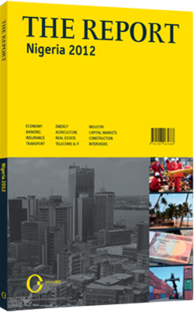OBG talks to Dave Uduanu, Chairman, Pension Fund Operators Association of Nigeria

Interview: Dave Uduanu
What primary market forces are driving consolidation in the pension fund sector?
DAVE UDUANU: This can be broken down into four core items. First off, pension fund administrators (PFAs) need to operate at a scale that makes business profitable. Second, the increasing complexity of the business, particularly with regard to IT infrastructure, is raising standards to new levels. There is now a need for electronic capture of biometric data and strong human capital, focusing on IT skills, because everything in the industry is going to be on an online platform. Third, the transfer window that allows customers to switch from among PFAs has now been fully implemented. Lastly, there is a slowing growth rate in the pension fund sector, which is raising competition for market share. You have 23 players now fighting in a very intense and competitive market. At present, the top 10 companies control about 90% of the market. This means that the remaining 13 firms have to come together if they want to maintain the 10% that they currently hold.
How can pension funds participation in long-term investment vehicles be increased?
UDUANU: I think that PFAs are looking for asset classes that will give them additional returns. Those asset classes tend be broadly based alternative assets, including private equity, infrastructure, commodities and properties. Of highest importance to PFAs are properties. Real estate is a valuable investment asset in this country, which Nigerians have always understood. Rental yields are fairly high now, even by global standards, and properties can act as a strong hedge against inflation.
The other important sector for PFAs is private equity. The stock market in Nigeria does not represent the economy of the country. This is evident because most oil and gas companies are not listed. Pension funds are thus looking to access growing, non-listed sectors, which is done through private equity. Lastly, infrastructure projects have investment potential, particularly when they are structured on a public-private partnership basis.
However, both the principal and the commercial terms of the project need to be protected for the PFAs to participate. The single most important factor that is blocking pension funds from investing in infrastructure projects is the lack of parliament-backed government guarantees.
Why is the role of banks limited when it comes to the distribution of pension plan schemes?
Could they become a viable channel in the future?
UDUANU: Banks represent the widest distribution channel in Nigeria today. The biggest banks have about 600 branches. Tier-two banks have 300-400 branches. Beyond that they have a number of retail customers. The reason that banks aren’t selling pensions today is due to the low commissions PFAs can offer banks. Moreover, most PFAs don’t have the scale that makes it viable for banks to want to operate. This would change after consolidation. Partnering with PFA that has up to a million subscribers is a very attractive proposition for a bank. There is the advantage of sharing fees, but more importantly, if the regulator allows every bank to collect on the PFA’s behalf, it would be a huge incentive for banks.
How can the adoption of pension schemes by the informal economy be encouraged?
UDUANU: For the informal sector, income levels are very low. The regulator needs to step up to the plate here. One of the things that the regulator should do is to create a minimum pension guarantee. So if you retire at age 60, there is a guarantee that you will have a minimum pension for life. If the industry works with the regulator and the government, and they guarantee up front that there is minimum pension ensured through a broad-based scheme, more of the informal sector is likely to adopt pension plans.
You have reached the limit of premium articles you can view for free.
Choose from the options below to purchase print or digital editions of our Reports. You can also purchase a website subscription giving you unlimited access to all of our Reports online for 12 months.
If you have already purchased this Report or have a website subscription, please login to continue.

